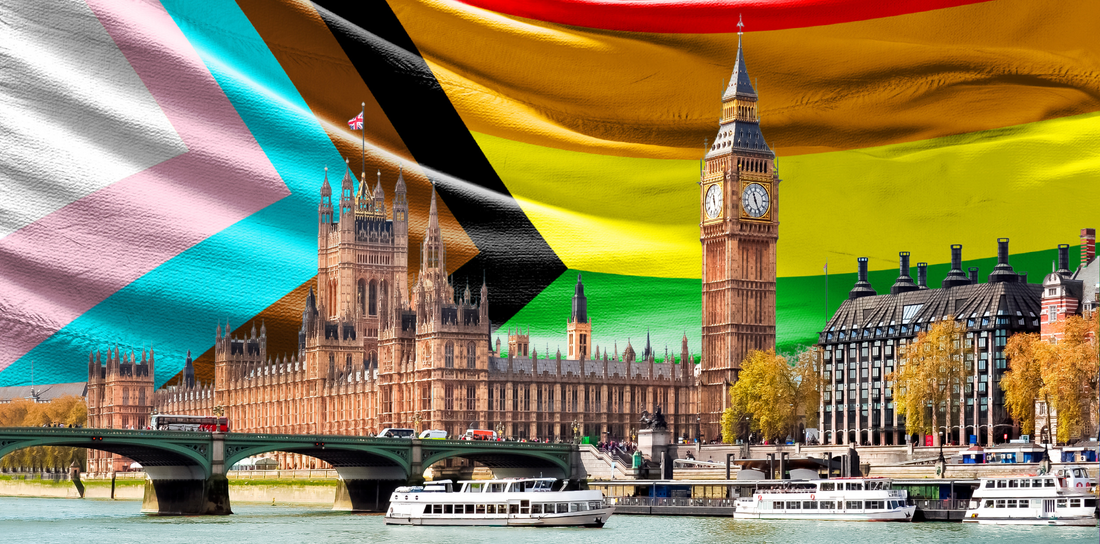
LGBTQ+ rights in the UK - DYKKA.com
Share
What comes to mind when you think of Great Britain? The Beatles, London, Amy Winehouse, Elton John? Let's take a look at how queer people live in the UK.
Warning: The text mentions suicide.

Unlike the Czech Republic, the English Channel country can boast of marriage for all , which was approved in this country in 2013. But that doesn't mean that LGBTQ+ people have always thrived in this country.
For example, sexual intercourse between men was banned in the UK until 1994, although some relaxation came as early as 1967. At that time, a law was passed that allowed two men to have sex together if they were both at least 21 years old and it took place in private.
Before the law came into effect, many famous and unknown people, such as the writer Oscar Wilde and the philosopher and computer scientist Alan Turing , were convicted of having sex with a man. The latter chose hormone treatment instead of prison, but ultimately committed suicide in 1954. It was not until 2017, 63 years after his death, that he and the other convicted men were pardoned.
The UK has been in the news recently for its hate speech towards transgender people. Although it is possible to legally change your official gender in this country, in practice it is much more complicated than in the Czech Republic, because just changing your birth certificate can take years – even if you do not want to change your official gender. This bureaucratic obstacle was paid for in 2015 by barmaid Tara Hudson , who was sent to a men's prison by the court. However, due to protests and signed petitions, she was transferred to a women's prison, where she served her sentence.
But even in the 2020s, disdain for transgender people persists in Britain, whether from radical feminists or others. The most common argument for restricting the transition and rights of transgender people, especially women, is the threat to the rights of cisgender women, despite the fact that transgender women are statistically more likely to be victims of violence.
LGBTQ+ people in the UK are constantly raising awareness of these issues, including during pride marches . The largest of these are held not only in London, the capital of the United Kingdom, but also in Brighton in England, Cardiff in Wales, Edinburgh in Scotland, and Belfast in Northern Ireland. Also worth mentioning is the London Black Pride march, which takes place in London and celebrates LGBTQ+ people of African, Asian, Middle Eastern, Latin American, and Caribbean descent.
